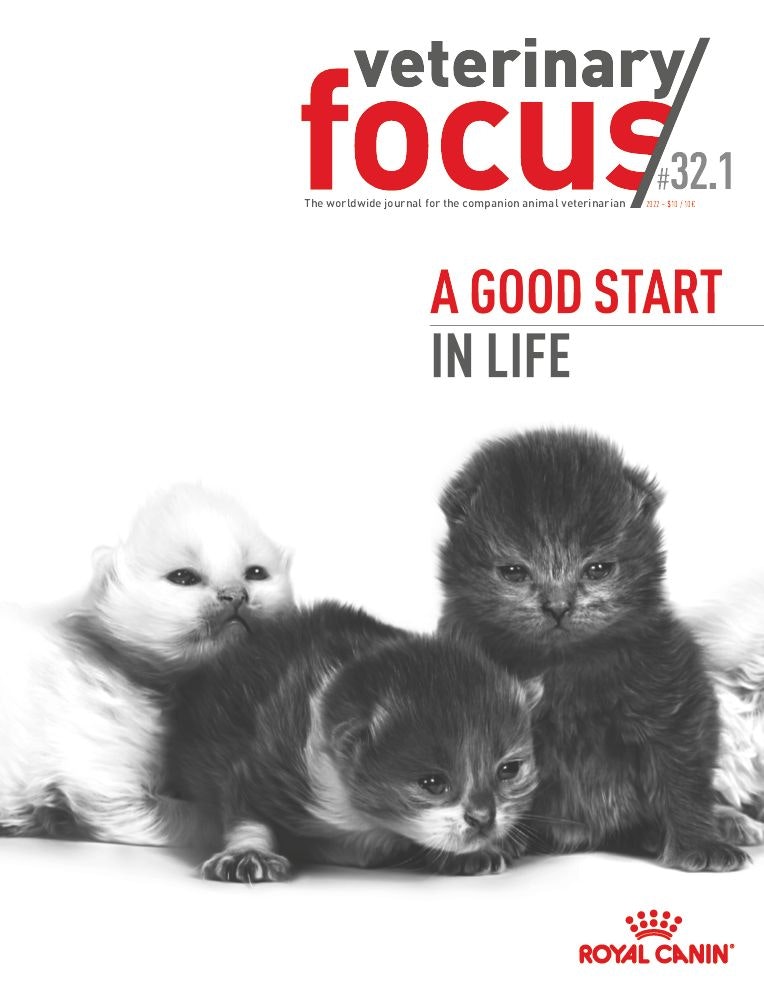Canine milk replacers
It may sound simple enough to offer milk to newborn puppies, but various pitfalls await the unwary, as Emmanuel Fontaine describes.

It may sound simple enough to offer milk to newborn puppies, but various pitfalls await the unwary, as Emmanuel Fontaine describes.
Growth charts for children are nothing new, but recent work has resulted in the concept being developed for dogs, and they are now an essential part of the veterinarian’s toolkit.
Ensuring kittens have an optimal vaccination schedule whilst creating positive patient experiences at the veterinary clinic can be a win-win situation, as Kelly St. Denis describes.
How should we approach the problematic choice of antibiotic in young puppies and kittens? J. Scott Weese offers a practical guide to this all-too-common scenario in small animal practice.
To date, amniocentesis has rarely been used in veterinary medicine, despite having tremendous potential for both clinical and research applications; this paper discusses an established method for fetal fluid sampling in bitches.
The “Fading Puppy Syndrome” is well recognized in veterinary practice; this paper offers a practical approach to the problem.
Successful kitten visits to the clinic will set the feline patient up for a lifetime of veterinary care, as Liz O’Brien explains.
Maternal behavior plays a major role in the survival of puppies during the first weeks of life, and it may also have a long-lasting effect on their cognitive development. This paper offers some cues and clues that could help the clinician when dealing with newborn puppies.
Understanding the different stages in a kitten’s development is key to advising owners as to the best ways to interact with their cat, as Kersti Seksel describes.
How important are dietary long-chain polyunsaturated fatty acids for healthy development? Russ Kelley describes some recent work that suggests they are a vital part of a puppy’s nutritional requirements.
Many owners will choose their puppy for all the wrong reasons, but Jon Bowen identifies some key factors that can help a young puppy develop into a great member of the family.
The world brings challenges for the veterinary profession on a daily basis, and it can help to know that what we experience as individuals is shared by our colleagues, wherever they may be – and by understanding the challenges faced by other stakeholders we can work together in a way that is mutually beneficial.
In the first of a two-part series, the authors look at protocols in veterinary practice, and why they can be a key component to running an effective clinic.
In the second of this two-part series, the authors look at how to motivate the team and successfully design and implement protocols in veterinary practice.
